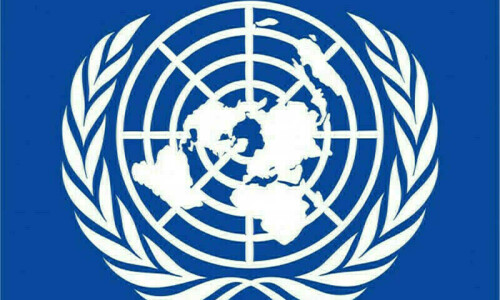RIYADH, Sept 20: Oil markets are tumbling, despite Hurricane Ike debilitating impact on energy infrastructure in the US Gulf coast and the Opec call to rein in overproduction. Concerns that turmoil on Wall Street would weaken the global economy and scuttle demand are taking its toll.
In the wake of the Opec decision and the Saudi Arabia’s continued insistence to take care of all the market requirements, many seem to have started writing off Opec as an effective cartel. Interesting opinion pieces predicting death of the organisation as an effective group could be seen all around in the western press.
And this is nothing something new. We’ have been down this road before. Many a time in the past such projections and predictions were made. And yet the Opec wriggled out of all those scenarios too, rather successfully and all indications are that the organisation would put the pundits on the floor this time, too.
Let’s look at what the Saudis have been saying. Quoting a senior Opec delegate, The New York Times earlier the week said, “Saudi Arabia will meet the market’s demand. We will see what the market requires and we will not leave a customer without oil.” Does it differ from the Opec stance?
Even hawks within the group maintain they were forced to act, only because of a lack of demand. After all Opec cannot be a spectator to oil markets collapsing. Its stated objective is to keep it stabilised - at a certain level.
Is this different from the Saudi stance? On a closer look, the answer seems a firm No. Saudis too do not want the markets to collapse. Saudi Arabia may differ with Iran, Libya and Venezuela, the so called hawks within the cartel, yet at the same time, it has been resisting undue US pressure. All through these turbulent months, Riyadh has kept its cool keeping its interests in view. Business remains supreme in this high-profile game. And Riyadh knows it very well.
Closely analysed, even the Opec communiqué was quite bearish for prices. It talked about “a weakening world economy” and “concomitant lower oil demand growth.” And in the wake of all these developments, and despite all sort of reports to the contrary about the Saudi policy on output, even the International Energy Agency reported Saudi production at 9.46 million barrels per day for August compared with a long time high of 9.7 million produced in July. Adjustments to the market demands may have already been in operation, it now seems.
Others did not feel much differently. Mike Wittner, energy analyst at Societe Generale, referring to the political pressures on leading Opec producers, says, “There are political considerations and Saudi Arabia and other moderate Opec members have a genuine concern that while higher oil prices didn’t cause the economic slowdown, they are an extra weight on the economy.” Saudi Arabia would eventually cut output, he added.
Shokri Ghanem, head of Libya’s state oil company, who has repeatedly said the market was in danger of becoming oversupplied, also insisted last week that Opec would cut.
And the markets also did not react otherwise to the Opec decision, as some had projected, underlining the fact, ‘the market is oversupplied.’ After briefly rising by a dollar following the Opec decision, oil prices continued going down, aided by the global economic woes.
And the current financial turmoil notwithstanding, already there seemed a good chance that prices would continue its slide. On Sept 10, analysts at Barclays Capital, long-time bulls on oil prices, slashed their forecast for the average price for the current year’s fourth quarter, from $123.90 per barrel to $97.50 - major reduction indeed. Market dynamics have changed - at least for the time being- and every one within Opec is alive to the new, emerging realities.
The Saudis continue their balancing act. Their actions not always represent political considerations, as some allege. In most cases pure business logic, and that too the long-term, drives that.
If Saudi Arabia has been endeavouring to calm the oil markets and curbing unjustified rise in prices, it was basically in view of its long-term interests in the market. Riyadh definitely does not want to harm the economies of consumer countries, contributing to demand destruction, signs of which are already there.
This would be suicidal for oil exporting countries. Riyadh is there on global energy map for many more decades to come and thus has an innate interest in keeping consumers rely on oil as the main source of energy.
Saner minds could not contest these objectives. And no one could deny that Saudis have been of behaving rationally, rather than irrationally, all these months and years.













































Dear visitor, the comments section is undergoing an overhaul and will return soon.